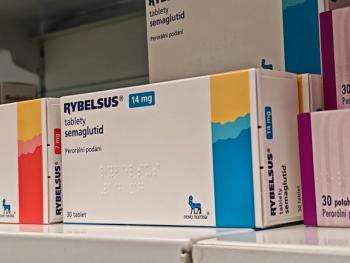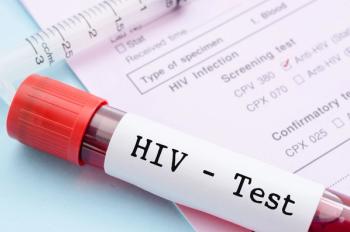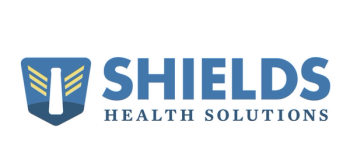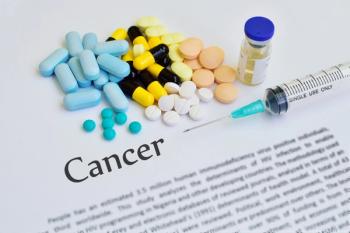
The FDA approved oral semaglutide to reduce the risk of major adverse cardiovascular events (MACE) in patients with type 2 diabetes (T2D).

The FDA approved oral semaglutide to reduce the risk of major adverse cardiovascular events (MACE) in patients with type 2 diabetes (T2D).

The partnership, and investment from Shields, aims to enhance workflows for high-touch medications with innovative pharmacy operations technology, improving patient experience and reducing administrative burden.

Explore the rising prevalence of diabetes in the US, its various types, and the critical role pharmacists play in patient care.

Although cholesterol-lowering guidance often touts the achievement of very low levels of low-density lipoprotein (LDL) cholesterol, emerging research demonstrates possible safety risks.

CKD is a complication of diabetes. Emerging treatments aim to optimize management and reduce risks. Pharmacists are key in applying new evidence to clinical practice.

Specialty pharmacists enhance CKD management through personalized care, medication adherence strategies, and collaboration with health care providers.

Pharmacists can educate patients on nonpharmacologic strategies that help improve survival outcomes.

Atopic dermatitis significantly impacts quality of life, and requires personalized management through trigger identification, skin barrier maintenance, and a range of topical, oral, and biologic therapies to reduce symptoms and prevent flare-ups.

High-cost medications necessary for treatment require close management to ensure patient safety and to adhere to payer-specific requirements.

If approved, zongertinib may be a new first-line oral tyrosine kinase inhibitor (TKI) for patients with HER2-mutated non-small cell lung cancer (NSCLC), a transformative step in TKI drug development.

Future potential directions include measuring the impact of clinical pharmacist interventions on referral utility, disease-specific clinical outcomes, patient satisfaction, medication adherence, and absenteeism.

A clinical pharmacist discusses his work in the mental health space while stressing the importance of advocating for and checking in with one another’s emotional well-being.

HSSPs improve medication adherence and reduce total health care costs by directly managing medications for complex chronic conditions like cancer, diabetes, COPD and CHF.

Black History Month provides a reminder of the systemic barriers facing many Americans

In the second part of his interview with Pharmacy Times, PharmD, CSP, AAHIVP, a clinical pharmacist and subject matter expert with Shields Health Solutions, discussed pharmacists’ role in HIV education and management.

With precision medicine, patients undergoing treatment are living longer without disease recurrence or progression and with fewer adverse effects, resulting in preservation of quality of life.

Paul Rainville, PharmD, CSP, AAHIVP, a clinical pharmacist and subject matter expert with Shields Health Solutions, discussed the current state of HIV in the United States

Kate Smullen, PharmD, CSP, MSCS, senior director of clinical services at Shields Health Solutions, discussed her journey to becoming a pharmacist and how she has been celebrating this American Pharmacists Month.


Migraines can be a primary diagnosis or a symptom of an underlying medical or psychological condition.

Stephen Davis, PharmD, senior director of Health System Strategy at Shields, and Erica Diamantides, PharmD, specialty pharmacy manager at UW Medicine, discuss the current guidance and best practice for specialty pharmacy accreditations.


Poster presentations and speaking sessions at NASP showed the importance of clinical pharmacists in ambulatory care and opportunities to expand specialty pharmacy services in ambulatory care.

Care Coach program offers a comprehensive set of pharmacy and counseling services to patients struggling to manage their diabetes.

PAPs can significantly reduce OOP costs for patients.

Shields Health Solutions poster presentations highlight a comprehensive approach to specialty patient care and successful results from an expanded offering of instructional programs.

Specialty pharmacy is deeply engaged in providing treatment for conditions that are at high risk for mental health challenges.

Because of the likelihood that patients with melanoma will develop adverse effects on therapy, it is crucial for pharmacists to proactively educate patients and provide them with tools to help mitigate and manage these issues.

Pharmacists who educate patients with multiple sclerosis and expand their understanding and knowledge of the condition empowers them to take part in a more active role in managing their health.

With integrated specialty pharmacies enabling health systems to improve patient outcomes and lower total medical costs, every hospital will need a solution to support the growing number of patients on outpatient specialty medications.